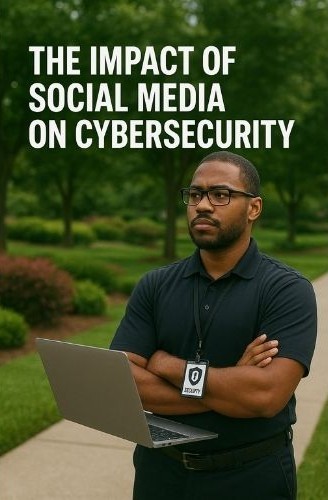Social media has transformed how we communicate, how we keep in touch, and also how we do business. It is a strong instrument, and it poses an increasing threat to cybersecurity. Every post, photo, or comment can divulge information, which in the wrong hands can be used to commit a fraud, identity theft or even a targeted attack. Learning about the impact of social media on cybersecurity is not an option anymore, but a must, even for individuals and organizations.
The way Social Media makes things riskier
This is one of the things that makes social media attractive but also dangerous because of its openness. To find personal or corporate data, cybercriminals usually use a scan of the public profile and even commentary. The information can be used subsequently to:
- Phishing Phishing entails the creation of realistic messages to fool users into providing sensitive information.
- Data harvesting – gathering and processing of posts, with the aim of detecting possible vulnerabilities.
- Impersonation- Making false accounts to impersonate someone you know or a brand.
Even good employees may inadvertently give too much information about their place of work, making it easier for attackers to exploit security loopholes.
Learn more about: What is Cyber Security
The Human Element – Social Engineering
Many cybersecurity breaches don’t start with code—they start with conversation. Social engineering uses trust, curiosity, or urgency to get people to lower their guard. In social media, it can be a friendly connection request, a link that appears interesting, or a message from someone who pretends to be in need. These interactions are perceived as personal and, as such, they may go around the conventional technical protection.
Practical Steps to Reduce Risk
Good social media cybersecurity is more about practice and less about technology. Some of the practical measures are:
- Set the privacy settings to make posts and personal information not visible publicly.
- Show less about work, travel or your everyday lives.
- Educate the workforce on suspicious messages or links.
- Activate the multi-factor authentication of all business and personal accounts.
Even minor alterations are enough to dramatically decrease the risks of becoming a victim of attacks based in social media.
Conclusion
Social media is here, and there are dangers that come with it also. It is not that these platforms should be avoided it just implies that they are to be used with caution and awareness. We can take advantage of social media and preserve our personal and professional information by being open and secure and choosing what to share.


